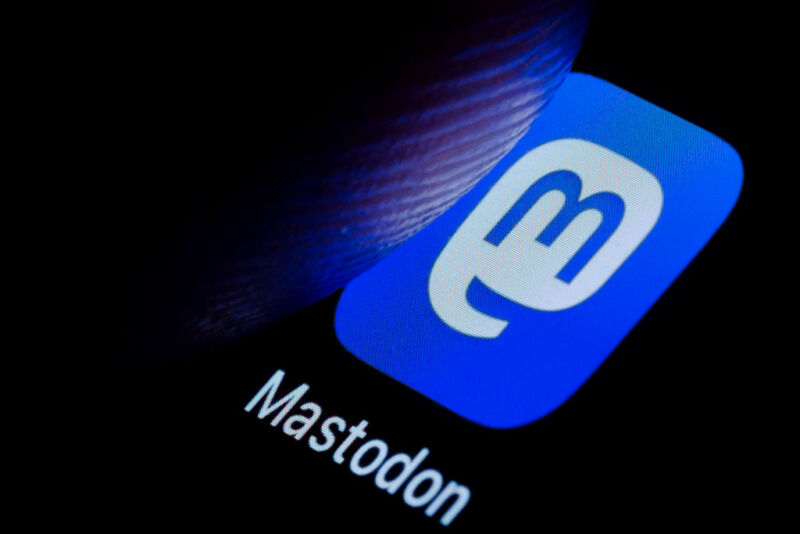
Since late 2022, Mastodon has increasingly become a popular alternative to Twitter for millions of users. This is partly because its CEO and founder, Eugen Rochko, has emphasized that the decentralized social network—which operates as a nonprofit—will never be bought by a chaotic billionaire.
However, some would-be Mastodon users fleeing Twitter apparently never made it through Mastodon’s slightly more complicated sign-up process. Some of them quickly abandoned Mastodon after creating an account, becoming instantly confused when they were asked to find a server to join. Because of this unfamiliar extra step that’s not required to join most mainstream social networks, it seemed like Mastodon was missing out on a major opportunity to attract and retain Twitter users. These stakes likely only got higher after top Twitter influencers started joining another Twitter rival called Bluesky.
As Bluesky gained steam, Mastodon decided to listen to user feedback and take an unexpected step to make its platform more accessible than ever. Now, Mastodon will do what social networks traditionally do and default users to a server operated by Mastodon when they sign up. Acknowledging that Mastodon’s sign-up process “can be confusing,” Rochko announced that this tweak to Mastodon removes “friction from decentralized features” and makes it “as easy as possible” for new users to “get past the sign-up process and more quickly engage with others.”
For users attracted to Mastodon because of its decentralized structure that allows users—not companies—to create and manage their own servers, the move to default users to Mastodon-run servers seemed counterintuitive. But Rochko wrote that “it’s important for Mastodon to be good as a product on its own merits, and not just because of its ideology,” noting that “if we only attract people who already care about decentralization, our ability to make decentralization mainstream becomes that much harder.”
“This gives us a far better chance of showcasing what decentralized social networks have to offer instead of having that person bounce and never hearing from them again,” Rochko wrote, citing immense growth over the past six months despite many users struggling to sign up. Rochko confirmed that users can also opt to “go through advanced server selection” at sign-up if they’re not interested in joining Mastodon’s default servers.
Building on Mastodon’s sudden success
Earlier this year, Mastodon was gaining 1,000 new users an hour. Rochko watched as its user count ticked up to 8 million. Compared to Twitter’s estimated 368 million monthly active users, Mastodon’s growing total number of users seems small, but to Mastodon, this surge represented a tipping point that possibly marked a culture shift toward decentralized social networks becoming more mainstream.
As Mastodon grew, investors came calling. Rochko told the Financial Times that he turned down more than five Silicon Valley venture capital firms offering to invest “hundreds of thousands of dollars.” While currently, Mastodon is willing to compromise by defaulting users to a server that it operates, Rochko has never been willing to compromise on the social network’s nonprofit status. Instead, Mastodon’s massive growth is primarily being funded by more than 8,500 Patreon donors. Donations amount to a $30,000 monthly budget, Rochko told The Verge in March, and certain top-tier Patreon supporters are considered sponsors. Mastodon has also received a limited amount of grant funding, Rochko told The Verge.
After refusing to sell out to investors, last month, Rochko posted a blog saying that “without doubt,” Mastodon’s sudden success put a “strain” on its resources. Most worryingly, Mastodon was struggling to maintain “the public Mastodon servers that we, the non-profit, maintain ourselves: mastodon.social and mastodon.online.” It’s too soon to tell if Mastodon has fixed issues that could cause performance lags if its default servers become overburdened and underfunded as more users join due to the easier sign-up process.
“We have been working non-stop to maintain quality of service on mastodon.social and mastodon.online, but you may have noticed issues such as confirmation emails not arriving or home feeds being delayed,” Rochko wrote. “We apologize for the inconvenience and continue to work on addressing these issues.”
Any inconsistencies in platform performance could become another reason for fair-weather users to abandon the platform.
Ars could not immediately reach Mastodon for comment.
https://arstechnica.com/?p=1936085

